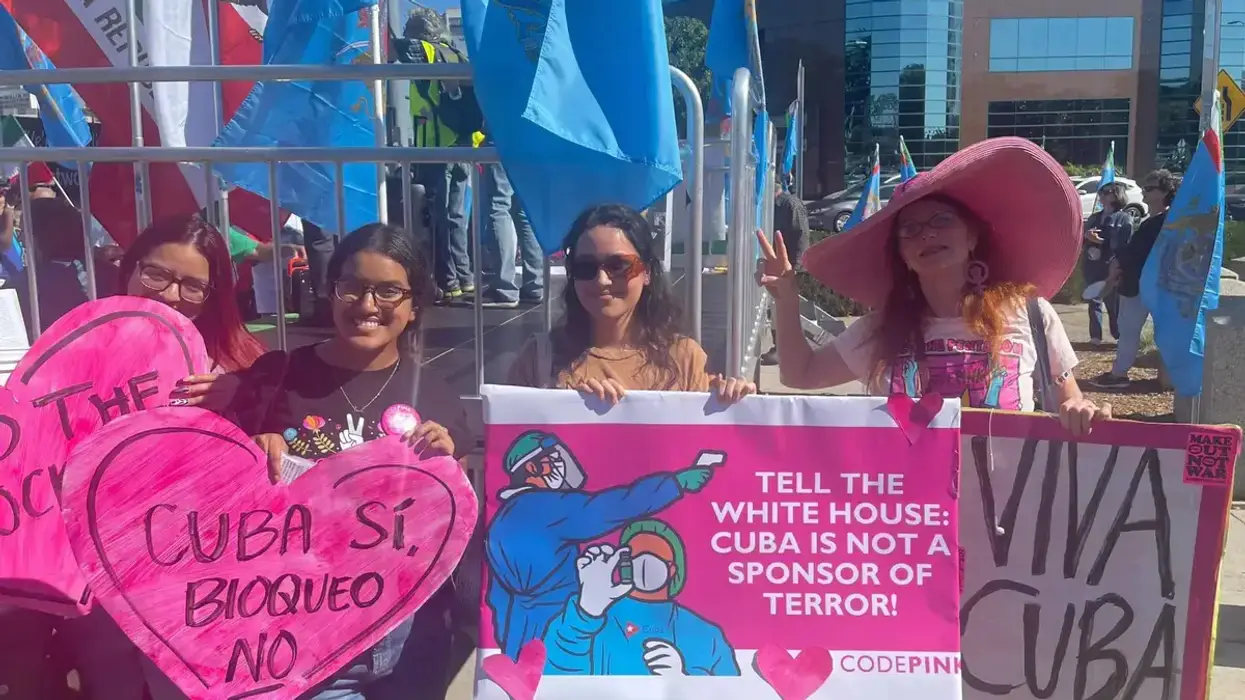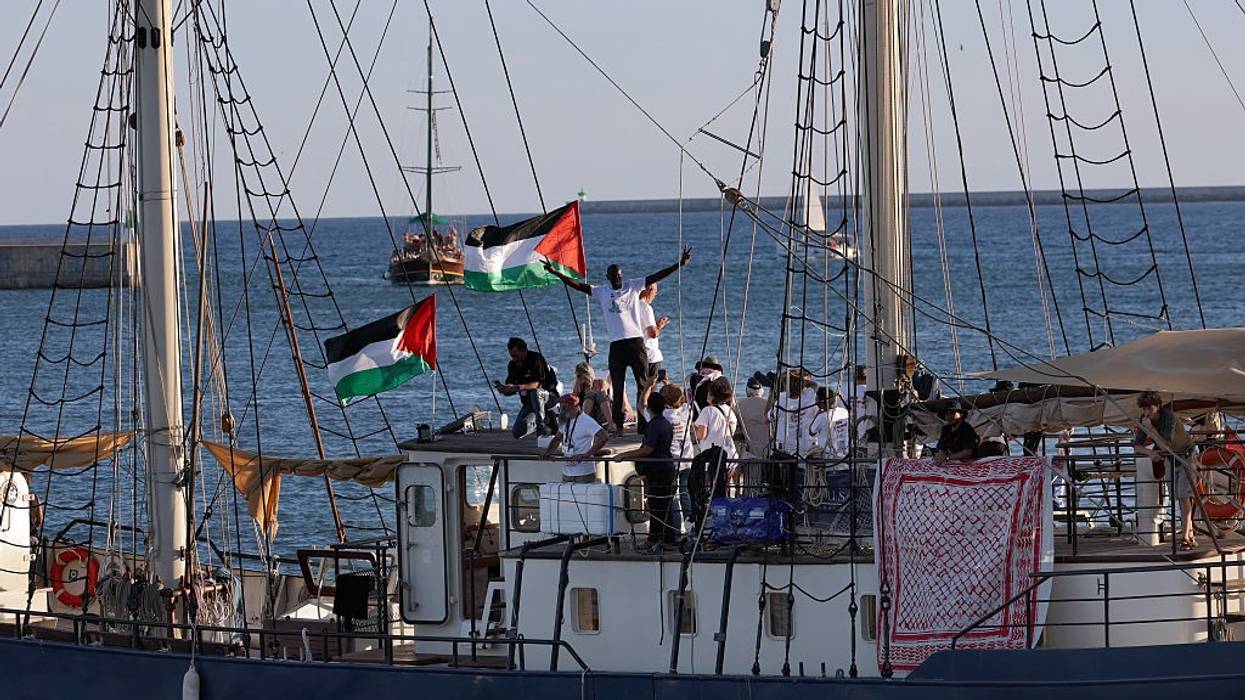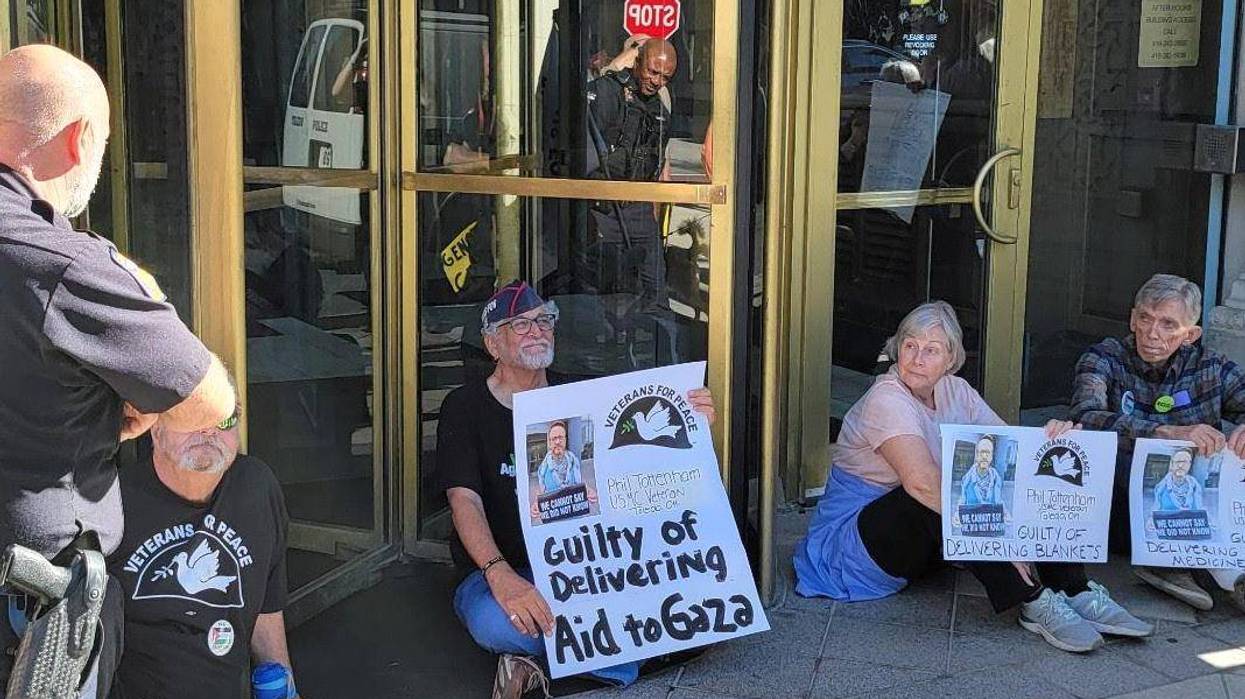'We Are Sailing to Cuba': Humanitarian Coalition Announces Flotilla to Break US Blockade
"Together, we can break the siege, save lives, and stand up for the cause of Cuban self-determination," said the mission's organizers.
As the Trump administration tightens an already devastating economic embargo of Cuba by targeting the island's fuel imports in a bid to topple the country's socialist government, a coalition of progressive groups on Thursday announced plans for a flotilla to deliver food, medicine, and other essential supplies to the besieged Cuban people.
Members of Progressive International, CodePink, and other direct action and advocacy groups plan to set sail for Cuba next month in the Nuestra América—or Our America—Flotilla, which they said is inspired by the Global Sumud Flotilla missions to break Israel's illegal blockade of Gaza amid the ongoing genocide in the Palestinian exclave.
"We are sailing to Cuba, bringing critical humanitarian aid for its people," the flotilla organizers said on their website. "The Trump administration is strangling the island, cutting off fuel, flights, and critical supplies for survival. The consequences are lethal, for newborns and parents, for the elderly and the sick."
"That is why we are launching the Nuestra América Flotilla, setting sail from across the Caribbean Sea in solidarity with the Cuban people," the organizers continued. "And we are asking for your support, to help us prepare the mission and purchase the food and medicine that we will bring to the Cuban people."
"Together, we can break the siege, save lives, and stand up for the cause of Cuban self-determination," they added.
The announcement of the flotilla came as the Trump administration ratchets up pressure on Cuba's socialist government by further suffocating the island's economy via an oil embargo similar to the one imposed on Venezuela before last month's US invasion and abduction of Venezuelan President Nicolás Maduro.
At the time, President Donald Trump threatened the leaders of Colombia, Cuba, and Mexico that they could be next.
Trump reversed former President Joe Biden's eleventh-hour move in January 2025 to remove Cuba from the US state sponsors of terrorism list, a designation utterly divorced from reality. Trump officials have cited Cuba's baseless inclusion on the list as justification for measures taken against the country's government and people.
The US embargo on Cuba dates to the early 1960s when the Eisenhower and Kennedy administrations responded to the successful revolution that overthrew a brutal US-backed dictatorship with a blockade accompanied by a decadeslong campaign of state-sponsored terrorism against the Cuban people that left thousands dead and more than $1 trillion in economic damages, according to the Cuban government.
Every year since 1992—with the exception of the Covid-19 pandemic year of 2020—the United Nations General Assembly has voted overwhelmingly to condemn and call for an end to the US blockade of Cuba.
Progressive International co-general coordinator David Adler told El País' Veronica Garrido Thursday, "The US government is drowning the Cuban people, who are running out of light, have no food, no medicine, no energy."
"I do not exaggerate when I say that we are seeing in Cuba the same playbook that Israel applied to the people of Gaza: an encirclement, an act of collective punishment that violates every aspect of international law,” he continued.
"We hope that [the flotilla] will be a mechanism of popular pressure to the governments of the world that have the responsibility, before international law, to protect the fundamental rights of the Cuban people and export the energy required by the island,” Adler said.
“There is nothing illegal about what we are doing," he added. "We are coming to a sovereign country and delivering humanitarian aid. We are ready to take risks in the name of humanity and the fundamental right of the Cuban people."


